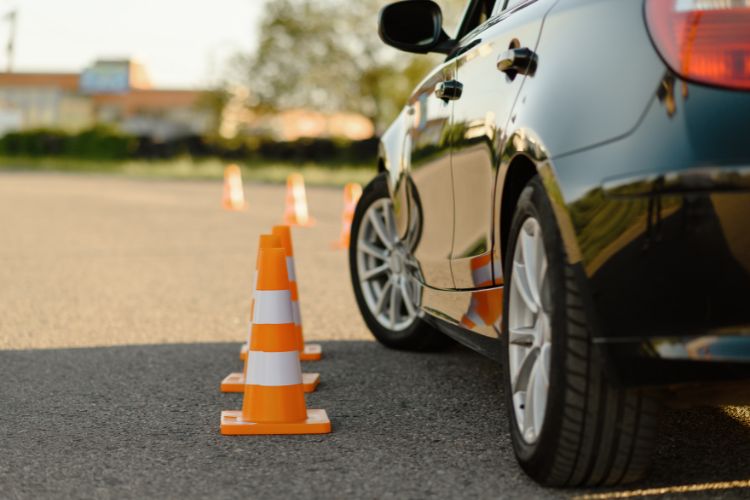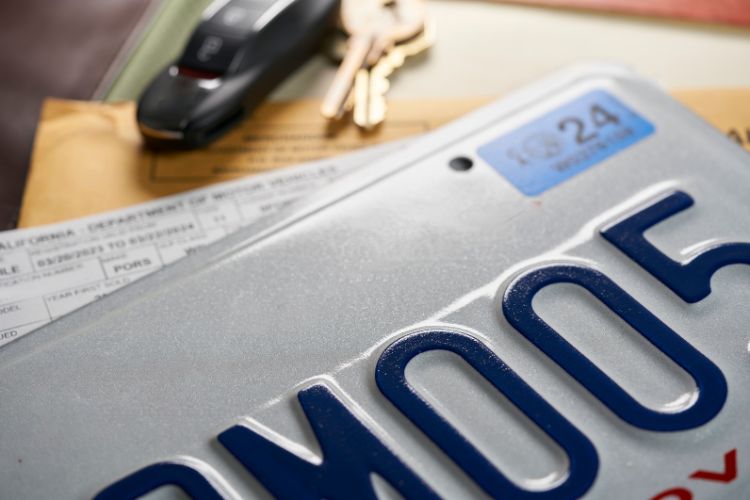What is a VIN?
A Vehicle Identification Number, commonly abbreviated as VIN, is a unique 17-character code assigned to every vehicle during its manufacturing process. Think of it as the fingerprint of a car; no two VINs are the same. The VIN plays a crucial role in identifying specific details about a vehicle, such as its make, model, engine type, and place of manufacture. Before the mid-1980s, VINs weren’t standardized, and cars weren’t necessarily required to have them. However, standardization was adopted later to aid in tracking vehicles more effectively
What Information Can You Find from a VIN?
A VIN isn’t just a random string of characters. Each section of the VIN encodes specific details about the vehicle, and by decoding it, you can find out a wealth of information:
- Locations Where the Vehicle Was Previously Registered: A VIN can reveal the states or countries where the vehicle was registered, helping you trace its journey over the years.
- Recalls Affecting the Vehicle’s Safety: Manufacturers issue recalls for defects that could potentially harm drivers. A VIN search can show if the car has ever been part of such a recall.
- Salvage Title Information: If a car has suffered significant damage, its title may be marked as “salvage.” A VIN lookup can confirm this, alerting you to potential issues with the car.
- Odometer Reading: While not foolproof, a VIN check can sometimes provide historical odometer readings, allowing you to verify the mileage on the car.
- Significant Changes to the Vehicle: If the vehicle has undergone significant changes, such as a change in engine size, a VIN can sometimes reflect this.
- Other Information: Additional details like transmission type, engine size, and even the factory where the car was assembled can be decoded from the VIN.
What Can’t You Find?
Although a VIN provides a lot of information about a vehicle, it has its limitations when it comes to identifying the current or former owners. A VIN will not directly reveal personal information such as the owner’s name, address, or other contact details due to privacy laws. However, the VIN is a starting point for official entities like law enforcement agencies, who can access more detailed records.

What are License Plates?
License plates are rectangular metal or plastic plates that serve as a form of vehicle identification, similar to but distinct from VINs. Unlike VINs, which are permanently etched onto a vehicle, license plates can be changed and are issued by governmental agencies. Each country or state has its own design and numbering system, but the fundamental purpose remains the same: to provide an easily visible means of identifying a vehicle. License plates generally display a unique alphanumeric combination, and many also include symbols, colors, or slogans that signify the state or country of registration.
What Information Can You Find from a License Plate?
A license plate links a vehicle to its current owner and is typically easier to see and remember than a VIN. However, using a license plate to access an owner’s personal information has been increasingly restricted due to privacy concerns.
- General Ownership Information: Authorities can use license plate numbers to find the registered owner of a vehicle, which may include the owner’s name and sometimes even an address.
- Status of the Vehicle: The license plate can sometimes show the current status of the vehicle, whether it’s active, stolen, or out of commission.
- History of Traffic Violations: Some jurisdictions maintain records of traffic violations against a particular license plate number, although this information is usually restricted to authorized personnel.
Despite the utility of license plates in identifying vehicles, laws such as the Drivers Protection and Privacy Act of 1994 have made it increasingly difficult for private individuals to access personal information linked to a license plate.
The Drivers Protection and Privacy Act of 1994
The Drivers Protection and Privacy Act of 1994 was a pivotal legal framework established in the United States to safeguard the personal information of vehicle owners. Prior to this act, it was relatively easy for individuals to access the private information of vehicle owners using just a license plate number. This accessibility led to a multitude of privacy concerns and safety issues, including stalking, burglary, and harassment.
The act set forth several key regulations:
- Limited Access: Personal information connected to a license plate or VIN could only be accessed by authorized personnel, such as law enforcement agencies, insurance companies, and licensed private investigators.
- Purpose Restriction: The act specifies the purposes for which this information can be used, such as emissions testing, recalls, and criminal investigations.
- Legal Consequences: Violating the act could lead to severe legal repercussions, including fines and potential imprisonment.
- Monitoring and Logging: All access to this information is logged and monitored to prevent misuse.
Practical Uses of License Plate Information
There are various scenarios where knowing the license plate of a vehicle can be incredibly useful:
- In Case of Accidents: If you’re involved in or witness a car accident, noting down the license plate can assist authorities in tracking down the involved parties.
- Property Damage: If a vehicle damages your property and leaves the scene, the license plate can help authorities identify the owner.
- Suspicious Activities: Should a vehicle seem suspicious—for instance, if it is parked near your home for an extended period without apparent reason—having its license plate can help the police in any subsequent investigation.
- Hit and Run Incidents: In the unfortunate event of a hit and run, the first and often the only piece of information you’ll likely have to go on is the license plate number.
By using the license plate number, both law enforcement and insurance companies can often determine not just who owns the vehicle but also who was driving it at the time of an incident, which may not always be the owner.
How Can You Trace a Vehicle’s Owner?
Tracing a vehicle’s owner is no longer as straightforward as it once was, mainly due to the Drivers Protection and Privacy Act of 1994 and similar legislation. While these laws have made it difficult for private citizens to access such personal information, they were enacted to protect against misuse and unauthorized disclosure.
Law Enforcement Agencies
In cases of emergency, crime, or accidents, law enforcement can easily trace vehicle ownership details. If you are involved in a situation that requires this information, it’s advisable to report it to the police.
Insurance Companies
If an incident involves a potential claim, the insurance companies will have access to this data for investigative purposes. However, they won’t share this information with private citizens.
VIN Lookup Tools
While they won’t provide personal information about the vehicle’s owner, VIN lookup tools can give you a host of details about the vehicle itself, from its manufacturing date to whether it has been subject to recalls or involved in accidents.
License Plate Lookup Tools
Some online tools claim to provide information linked to a license plate number. However, be cautious when using these services, as they often provide outdated or incorrect information and may be illegal in some jurisdictions.
When is it Legal to Trace a Vehicle’s Owner?
It’s crucial to understand that unauthorized access to someone’s personal information can be considered an invasion of privacy or even be illegal. Legal reasons for tracing a vehicle’s owner might include:
- Witnessing a Crime: If you’ve witnessed a vehicle involved in criminal activity, it’s crucial to report it to the authorities who will take the appropriate steps.
- Legal Proceedings: During accidents or legal disputes, attorneys may subpoena this information.
- Your Property is Damaged: If a vehicle damages your property, and the owner is not forthcoming, you may be able to access this information through official channels as part of a legal proceeding.
Who Can Access Your Driving Record?
Your driving record, also known as a motor vehicle report, is a document that details your driving history. It includes information such as traffic violations, accidents, and other driving-related incidents. This record is highly sensitive and can affect various aspects of your life, from employment opportunities to insurance rates.
Entities with Authorized Access
- Government Agencies: State and federal government agencies have the authority to access driving records for various purposes, such as law enforcement investigations or regulatory oversight.
- Insurance Companies: Insurance providers use your driving record to assess risk and determine your insurance premiums. They typically need your consent but may sometimes access this data as part of the underwriting process.
- Employers: Some employers, especially those in the transportation sector, may require access to your driving record as part of the employment screening process. Generally, they must obtain your explicit consent.
- Financial Institutions: Banks and other lenders may access a modified version of your driving record when assessing your eligibility for certain types of loans, like auto loans.
- Licensed Private Investigators: In certain situations, licensed private investigators may gain access to your driving record, but each transaction is logged and monitored to prevent unauthorized use.
How to Protect Your Driving Record
Given that multiple entities can access your driving record, it’s crucial to safeguard this information:
- Review Regularly: Periodically review your driving record for any inaccuracies and have them corrected.
- Limit Consent: Be cautious while giving consent for your driving record to be accessed, especially to non-essential services or businesses.
- Monitor: Various services offer alerts for when your personal information, including driving records, is accessed or changes.


